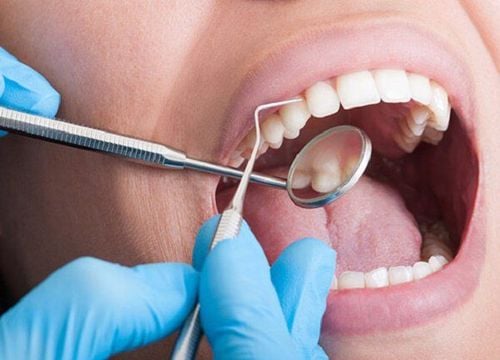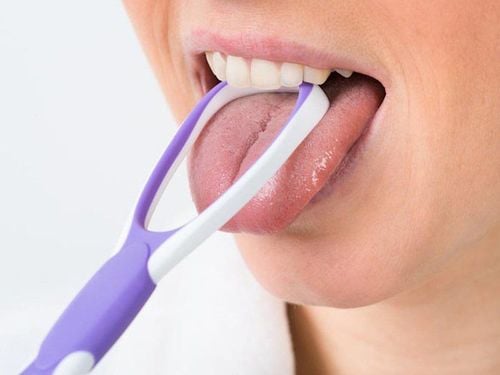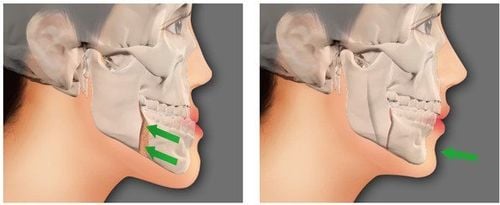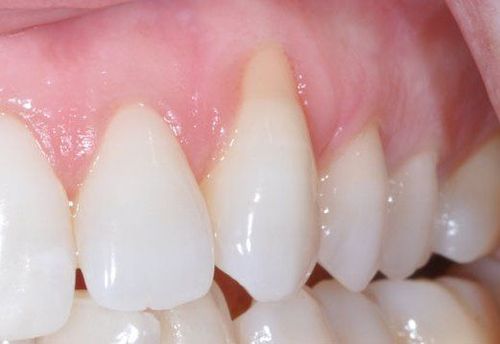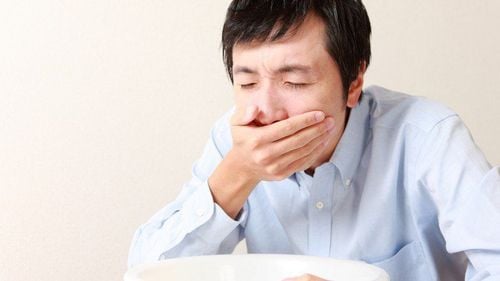This is an automatically translated article.
The article was written by the Doctor in charge of the Dental - Jaw - Facial Unit - Interdisciplinary Department - Vinmec Times City International General Hospital.Any physical examination is important for one's health because it is the doctor's way of checking the patient's latest health condition. The same goes for a dental exam, your dentist will be able to check for any oral problems you may have had in the past few months after your last visit and take care of your entire oral cavity. strong.
1. Procedure for a dental exam
There are 2 parts for regular dental check-ups - General examination (check up) and cleaning (cleaning); oral prophylaxis.
The dentist will check for plaque and tartar. Dental plaque is a transparent, sticky layer of bacteria. If not removed, it can harden and become tartar. You cannot remove tartar with brushing and flossing. If plaque and tartar build up on teeth, they can cause dental disease.
Next, the dentist will examine the gum (gum) area. For signs of gum disease, your dentist will check for swelling and redness and measure the depth of the gum pockets. This will be done with a special tool that measures the depth of the space between your teeth and gums. With healthy gums, the gaps are shallow. When people have gum disease, gaps can become deeper.
For signs of decay, your dentist uses a metal probe (probe) and a small mirror with an angled handle. During your dental exam, your dental professional will check for cavities. X-rays may be taken to detect cavities between your teeth.
Look for evidence of bruxism (bruxism) and TMJ (temporomandibular joint) problems.
The examination should also include a careful examination of your tongue, throat, palate and soft tissues, face, head and neck. This is to look for any signs of trouble - swelling, redness or possible signs of cancer especially for patients 35 years of age or older.
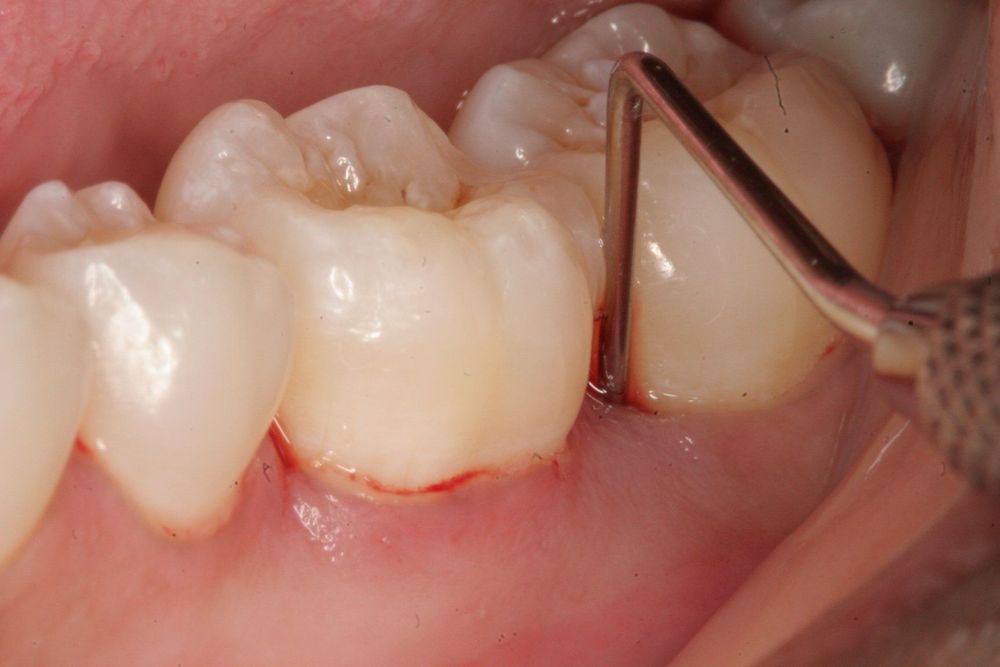
Bác sĩ tiến hành khám vùng lợi tìm khoảng trống nông
Professional teeth cleaning is one of the most basic yet important dental treatments of all time. This procedure uses different specialized tools to deep clean the surface of your teeth and gums. Brushing and flossing help remove plaque from your teeth, but you can't remove tartar at home. The benefits of a professional teeth cleaning are simple yet enormous, making it a top reason to visit your dentist regularly.
During cleaning, the dentist will do the following:
The dentist uses a scaler to remove tartar (calcium) above and below the gum line. The dentist uses an ultrasonic vibration device to shake loose plaque and tartar, which is then washed away with a stream of running water. Next, your teeth will be polished with a special paste. It helps to remove any stains on the surface of your teeth. The final step is flossing. Your dental professional will use floss to make sure the areas between your teeth are clean.
2. Don't miss a regular dental check-up
Regular dental check-ups help maintain and protect your oral and general health. Even if you have natural teeth, it's important to see your dentist for regular checkups so they can help you maintain good oral health. Dental professionals suggest that adults make an appointment for a general dental exam at intervals determined by their dentist, usually every 6 months. For people at high risk for dental problems and oral diseases, they may need to consult a dentist every 3 or 4 months, or even more, depending on recommendations. dentist's recommendation.
When it comes to your overall oral health, your dentist is your best friend. Your teeth and mouth can easily be cleaned at home, but that doesn't mean you've cleaned and polished them completely. For a thorough dental cleaning and dental exam, see a trusted dentist.
At the Department of Odonto-Stomatology of Vinmec hospital system, customers will receive a complete oral examination and dental care with the best quality dental treatments from general dentistry to dentistry. preventive dentistry, restorative dentistry and cosmetic dentistry.
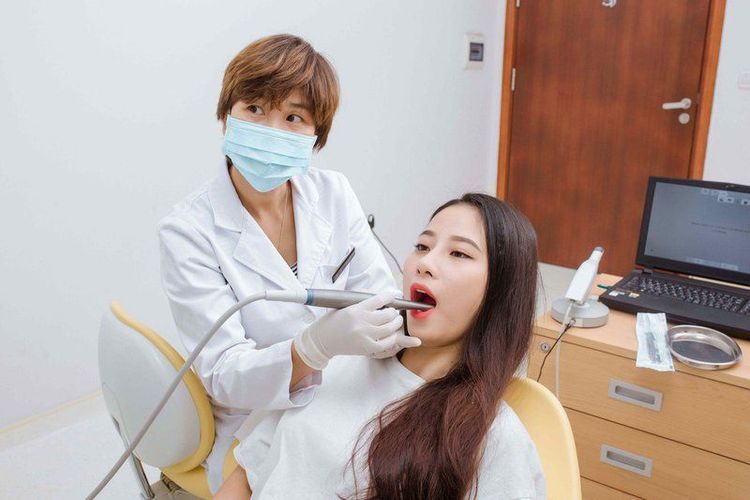
Khám răng định kỳ giúp bảo vệ sức khỏe răng miệng
3. What should you do between each dental visit?
Make sure to take care of your teeth and gums between routine dental visits. Plaque always forms on teeth, but you can control it with regular brushing and flossing. Here are some tips for taking good care of your teeth at home.
Brush your teeth at least twice a day. Make sure to use a toothpaste that contains fluoride. Use dental floss daily. Use mouthwash to help control plaque bacteria. This will also help keep your breath fresh. As such, regular dental exams are important because they help keep your teeth and gums healthy. You should visit your dentist regularly at least every 6 months or as recommended by a dental professional.
Please dial HOTLINE for more information or register for an appointment HERE. Download MyVinmec app to make appointments faster and to manage your bookings easily.




